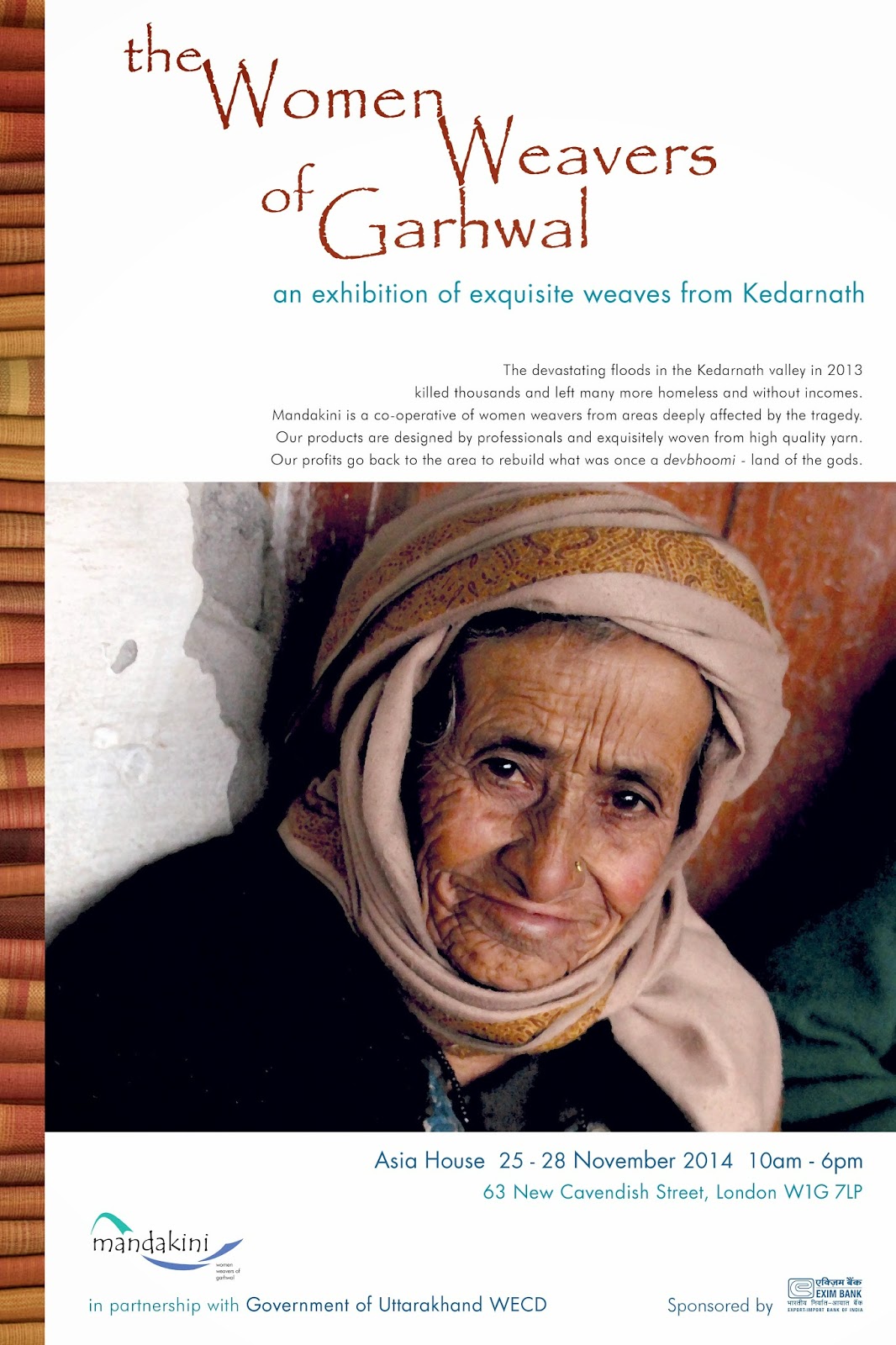Welcome to the Autumn
2014 Newsletter from Panchachuli U.K. A warm welcome to all our new readers, as
we look forward to another season, we’d like to take this opportunity to tell
you about some of the exciting developments that are taking place this year.
London Exhibition at
Asia House
Since October 2013
Panchachuli Women Weavers have been fully engaged with training another 300
women in Kedarnath in Uttarakhand. These women are mostly widows from the flood
disaster of June 2013 when thousands of menfolk and pilgrims lost their lives.
Now, a year later these women are ready to produce a range of beautiful hand
loomed products in Cashmere and Lambswool.
To celebrate this we are holding a week long Exhibition in
London at Asia House with a particular focus on the new venture, now called The
Mandakini Women Weavers of Garwhal.
The Exhibition will be from 25th-28th
November and open from 9am-6pm daily at Asia House 63 New Cavendish Street,
London.
We will feature both the Panchachuli and Madakini stories and
many of the designers, boutiques and larger corporations that we have
collaborated with over the years. This will also be a retail event and will
include the latest exclusive designs from Indian design team Thakore and
Abraham, now being woven for the Exhibition. Please help to support this event
by coming along if you can and buying some exclusive items for Christmas from
both Panchachuli, Mandakini and some of these other inspiring and luxury
retailers outlined below who have collaborated with Panchachuli UK this and
past seasons.
Training started in October 2013 for another 300 women from the
Kedarnath Valley after 72 hours of torrential rain left hundreds of people dead
or homeless in the region in June 2013. In this disheartening scenario,
the spirit of the strong, resilient and deeply religious women of the Kedar
valley is beginning to emerge tentatively but resolutely. Encouraged by their
sisters from Panchachuli Women Weavers Kumaon, village women like themselves, a
group of women, spread across the region in six villages, are learning to
revive the skills of their ancestors, which fortunately have not been lost yet
with the passing of generations. Skills which, if well learnt, have the
potential of developing in to a vibrant and sustainable cottage industry with
women at the helm. The ancient art of spinning and weaving was brought
centuries ago to the region over the high Himalayan passes from Tibet with the
trade caravans. Using
the Panchachuli model and infrastructure training will continue over the next
year until the women are able to form their own non profit company. If you
would like to help in any way please contact mary@panchachuli.co.uk




